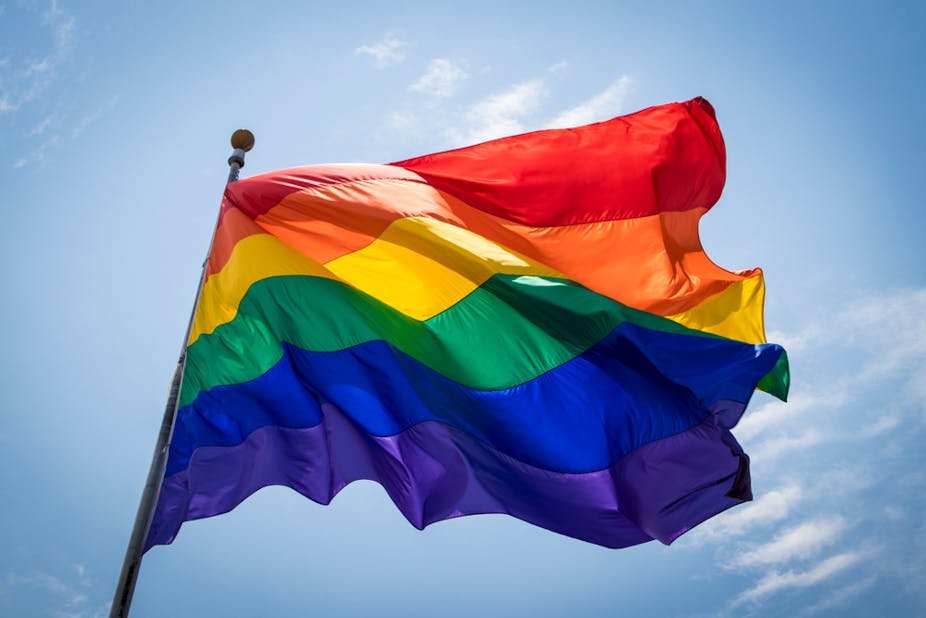Cuba will revise its constitution in 2019 – and one of the biggest topics under debate is Article 68, which proposes legalising same-sex marriage. By legalising same-sex marriage, and not just civil partnerships, Cuba would follow a broader trend in Latin America – and this is to be celebrated. But is the Caribbean nation’s promotion of this change really evidence of a genuine progressive socialist revolution, or another case of international pinkwashing?
The term “pinkwashing” was coined by scholar Jasbir Puar to refer to the promotion of LGBT rights in order to present a nation as modern and exemplary. It is often foregrounded as a triumph of democracy, in order to mask other human rights oppressions. Puar’s original reference was to Israel, which promotes itself as gay-friendly, partly to attract high-income gay tourism from Europe, and partly, Puar claims, as a weapon to bat away accusations of deep injustices and cruelty against Palestinians.
In recent times, acceptance of LGBT rights has been used as a marker par excellence of the neoliberal international world order. Take, for example, former UK prime minister David Cameron’s suggestion that he would withhold international aid from Uganda unless the country moved towards LGBT acceptance. Or the LGBT rights conditions for accession into the EU. The contemporary conflation of LGBT rights with broader democratic progress allows LGBT-friendly states to claim a place at the top table of international politics. But this might blind observers to other, less progressive and democratic activities.
Smoke and mirrors
Cuba has shown a commitment to LGBT rights over the last two decades. This is undoubtedly good news. But does it use this to obscure or minimise focus on its other transgressions? It is certainly true that the Cuban state remains heavy handed with freedom of speech in certain areas, and citizens who protest against the state are routinely watched, harassed and imprisoned.
Indeed, the intense current debate in Cuba around gay marriage is somewhat obscuring a concurrent constitutional change (Article 349), which aims to censor independent art and will result in increased restrictions on freedom of expression. Article 68 could also be, in part, a diversion to cover the lack of change in the rest of the constitution, which does not address other, equally important issues, such as the economy, wages, one-party rule and political freedoms.
El Nuevo Herald, a right-wing newspaper in Miami, for example, quoted José Daniel Ferrer, the leader of the dissident group Unión Patriótica de Cuba:
Article 68 is a smokescreen for people to discuss what the government wants and not talk about the most important issues: a dignified salary, an end to corruption, individual and political liberties.
There is also no doubt that if the constitutional changes pass, Cuba will trumpet them internationally. Since 2008, Cuba has voted at the United Nations in favour of LGBT rights, or statements against violations of rights on the basis of sexual orientation or gender identity. This history of visibly supporting LGBT rights suggests that Cuba is keen, as a state, to be seen as a progressive, modern actor on the world stage.

As Mariela Castro Espín, leader of CENESEX, Cuba’s national institution for sex education and LGBT rights, said: “With this proposal for constitutional regulation, Cuba puts itself among the world’s leading countries in terms of recognising and guaranteeing human rights.”
Homonationalism
While expanded rights for all are always to be applauded, this positioning of the Cuban state as a world leader on the basis of its support for LGBT people could be seen as a “homonationalist” move. Homonationalism involves making some LGBT bodies “worthy of protection by nation states”, bringing gay lives into conservative institutions such as marriage, and promoting certain types of “sanitised” gayness as being symbolic of the nation. Cuba’s promotion of LGBT rights seems to be signalling that (some) LGBT people can be made symbols of the state’s principles of equality for all.
Read more: Cuba: private home ownership recognised for first time since the revolution
But LGBT tolerance is by no means a given on the island. There is a strong push from the government, led by Castro Espín, but it is still a hard place to be gay, especially outside the capital, Havana, and in more rural areas. The Catholic Church in Cuba has also come out against same-sex marriage, trumpeting traditional family values and presenting LGBT rights as a form of Western ideological colonialism. Ordinary Cubans are not necessarily supportive of the idea of families headed by gay couples, although there is a live and let live attitude which may prevail.
Cuba has a strong recent history of state-led change in support of LGBT rights. But is this a genuine commitment, a way of selling itself as a modern state on the world stage, or a means of obscuring other forms of oppression? Perhaps the three options are not so clear cut or disparate, and Cuba’s strategy likely contains a little of each.
Either way, the legalisation of same-sex marriage will be a concrete gain in rights and protections for LGBT Cubans. But while we celebrate such developments, we should also take a moment to consider what the true motives may be behind them.

